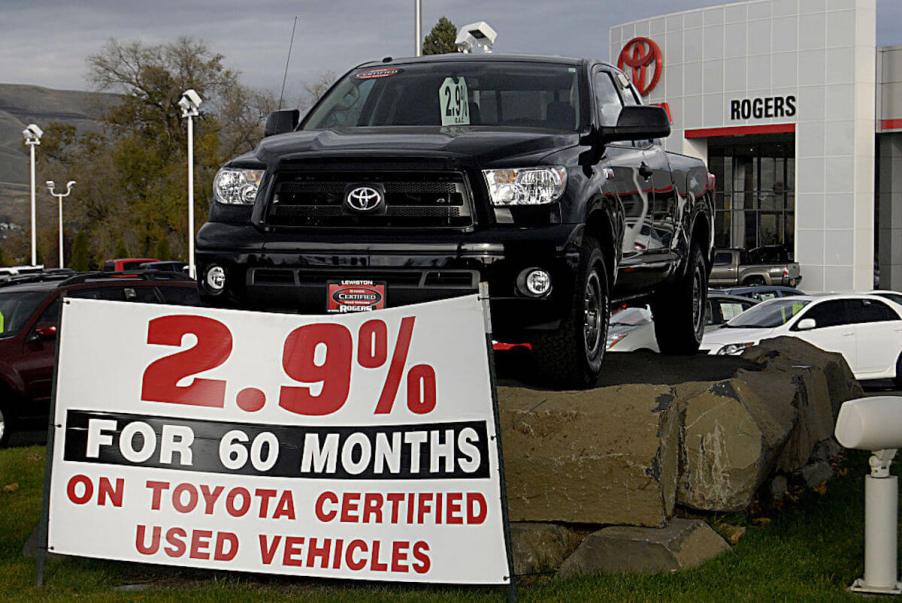
Report: 10% of Car Dealers Commit Loan Fraud Study Says
A recent study by a respected risk management company to auto lenders found that 10% of car dealerships commit loan fraud. It can take different forms both on the dealer and buyer sides. But with the rise of early payment defaults, those car loans that default in the first six months from origination, there is a strong desire to cut down on the defaults by exploring why they happen more frequently today. And it looks like one of the main places to look is at dealerships themselves.
How are car dealers instigating loan fraud?

Point Predictive, a company centered on dealership risk management, surveyed 35 lenders about what they’ve experienced with loan risks and defaults. In general, lenders are seeing much more loan fraud in 2023. The three main areas fueling that concern are income representation, synthetic identity risk, and dealer fraud.
Synthetic identity is when a real person’s private information like Social Security numbers, is combined with fabricated information to mask a buyer’s real identity. It can also take the form of forged paystubs. Some lenders are seeing as much as 20% of the loans they process include fabricated paystubs.
How big of a problem is car loan fraud?

In general, the concern over loan fraud is a major problem for over 75% of lenders. As early payment defaults rise, they’re causing more loan cancelations and car repossessions adding to the costs of the loan. And lending institutions by almost unanimous conclusion say that early payment default is a result of origination fraud.
On the dealer side, loan fraud comes in two major forms. One is where dealers participate in loan fraud and manipulate the buyer’s information, with the other being the manipulation of the vehicle’s data. Dealers tend to fudge the customer’s information more than the vehicle’s by 2-to-1. Dealer fraud is responsible for over 50 dealers being terminated by 1-in-10 lenders last year.
Many lenders are starting to use income validation companies to help them navigate the rise in fraud. But they’re expensive, which, naturally, buyers make up for in some form. And over a third of lenders say they don’t have anyone internally to investigate or identify fraud.
Why is loan fraud increasing?

A big problem for buyers as a result of the rise in loan fraud is that many lenders say they’ve only approved around 20% of the loans they received in 2023 so far. That’s in response to the numbers from 2022. Defaults in 2022 were over 2%, with delinquency rates over 1.5%. Generally, 80% of defaults lead to repossession.
Car loan defaults before the pandemic and following it are higher than during the pandemic. According to Automotive News, that’s because qualification requirements and oversight were tighter. But it might be partially attributable to the number of new vehicles sold in these years.
In 2019, 17 million vehicles were sold. For 2020, that number dropped to 14.5 million. In 2021 sales crept up to 15 million, with last year’s sales below 14 million. But with the increase in interest rates in 2022, and inflation generally, the number has less to do with yearly sales and more to do with outside pressures on individuals and families.



